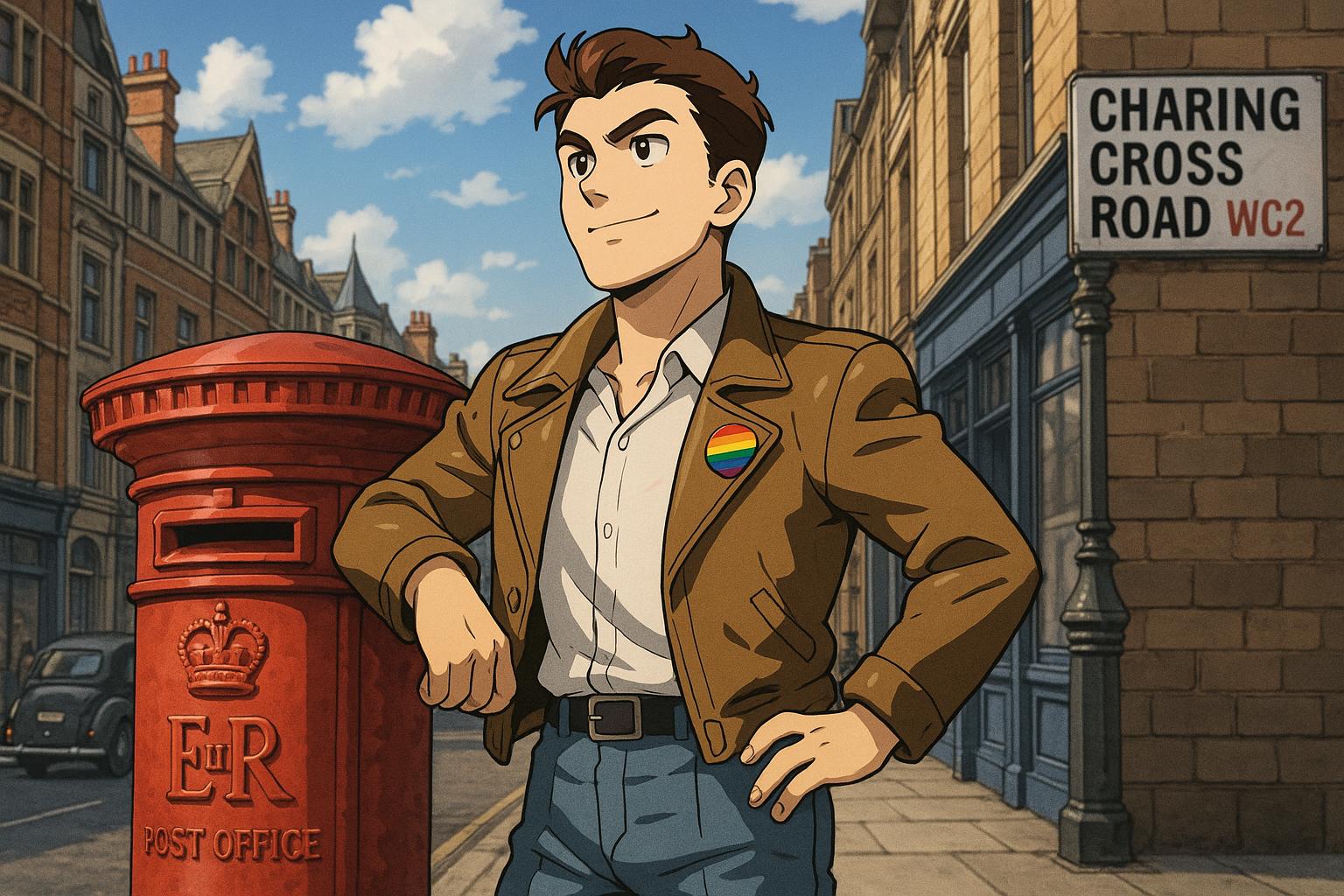With movie stars like Raquel Welch and Robert Mitchum among his clients, Roger Butler experienced a glamorous life working at a high-end property lettings agency during the bustling 1950s in London. For the shy 22-year-old, who had grown up in the tranquil Oxfordshire countryside, the city offered more than mere excitement; it provided an opportunity for him to explore his burgeoning identity as a homosexual in a society that was far from accepting.
However, the journey towards self-acceptance was fraught with tension and danger. One memorable night, after a mix of emotional turmoil and a few too many drinks, Roger found himself awakening next to a naked policeman—a startling reality that underscored the perilous circumstances surrounding his first sexual encounter. At that time, homosexuality in Britain was criminalised, punishable by up to life imprisonment. The thrill of the night became bittersweet as Roger realised that the very act that filled him with exhilaration could lead to imminent arrest.
Despite this precarious beginning, Roger soon found himself alongside a fledgling campaign group advocating for changes to the oppressive laws governing homosexuality. This marked the start of a bold chapter in his life that would ultimately see him become a pivotal, though overlooked, figure in the fight for gay rights.
Roger's plight mirrored a broader narrative unfolding across the UK, particularly influenced by the sensational trials that garnered public attention and sparked outrage. One such case involved Peter Wildeblood, a former diplomatic correspondent whose imprisonment for homosexual acts led to the publication of his impactful book, "Against the Law." This book, hailed for its raw honesty, shed light on the brutal realities faced by gay men and played a significant role in shaping public discourse around homosexuality. Wildeblood's story, marked by his courage and the stark injustices he faced, resonated deeply with Roger and served as a catalyst for his own awakening.
After reading Wildeblood's account, Roger felt an electric realisation of his own identity. This moment was significant, coinciding with what became known as the 'Montagu affair' in the early 1950s. The trial highlighted the state's excessive policing of homosexuals, stirring sympathy and prompting discussions about the injustices faced by the LGBTQ+ community. As Roger later reflected, the barbaric tactics employed by the prosecution in such cases illustrated not only societal prejudice but a misalignment between law and individual dignity.
By 1960, following the recommendations of the Wolfenden Report—which proposed that homosexual acts between consenting adults in private should not be criminalised—Roger took the brave step of publicly identifying as a homosexual. He enlisted the support of two fellow members from the Homosexual Law Reform Society and signed a letter addressed to several newspapers, courageously outing himself. This letter marked a seismic shift in how gay individuals were portrayed in public discourse, paving the way for future activists. Roger’s decision to come out was not just a personal revelation but a clarion call for visibility and acceptance, a chance to dispel the shadows that cloaked the lives of gay men at the time.
As the years rolled on and eventually led to the partial decriminalisation of homosexuality in 1967, Roger's personal journey grew increasingly complicated. His health deteriorated with glaucoma, leaving him completely blind by the late 1960s, which further disconnected him from the very movement he had helped invigorate. Although he was invited to celebrations marking the legal changes — a testament to his contributions to the cause — he felt unable to connect with the triumphs around him, often overshadowed by the challenges of his vision impairment.
Despite the personal hurdles he faced, including a lack of romantic fulfilment throughout his life, Roger's essence as a groundbreaking activist cannot be understated. He forged friendships and had brief encounters that touched his life deeply, yet he remained haunted by the notion of unrequited love and the inability to form a lasting relationship. In the final chapters of his life, he found solace in companionship with a man named Luke, but the relationship remained unfulfilled, leaving Roger with a lingering sense of longing.
In reflecting on Roger Butler’s legacy, a poignant truth emerges: his courage paved the way for many men and women to live openly and freely. He catalysed a movement that transformed societal perspectives on homosexuality, enabling futures for queer individuals that were once unthinkable. As a young gay student, the author discovered this legacy only years later, realising that the very freedoms he enjoyed were in no small part due to Roger's audacious act of dropping a letter into a postbox on Charing Cross Road—a letter that changed the narrative for generations to come.
Roger Butler's life, filled with both personal trials and monumental contributions to the fight for gay rights, serves as a reminder of the complexities and contrasts inherent in every journey towards acceptance and change—a journey that, while fraught with challenges, can lead to meaningful transformation.
Reference Map:
- Paragraph 1 – [1], [2]
- Paragraph 2 – [1], [2], [3]
- Paragraph 3 – [4], [5], [6]
- Paragraph 4 – [1], [5]
- Paragraph 5 – [1], [2], [3]
- Paragraph 6 – [1]
- Paragraph 7 – [1]
- Paragraph 8 – [1]
- Paragraph 9 – [1]
- Paragraph 10 – [1]
Source: Noah Wire Services
